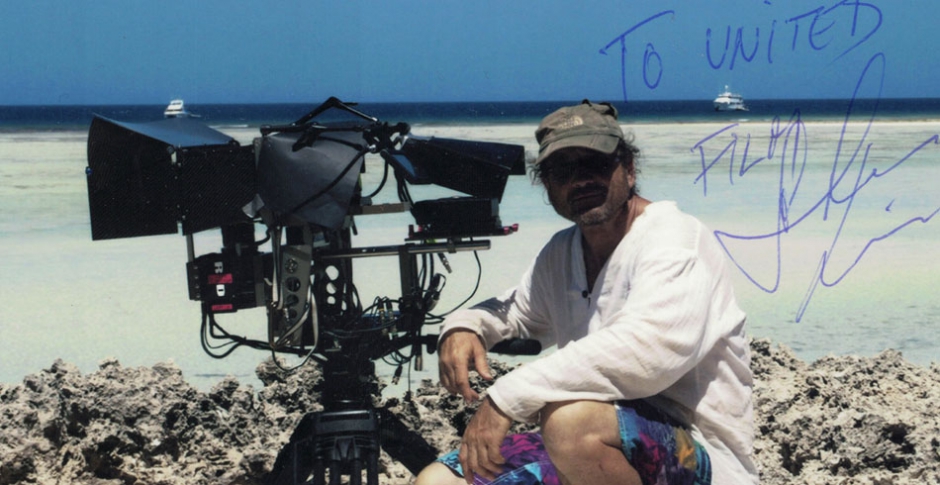Steve Lichtag - Festivals jury usually prefer good story to technique or quality of the picture
Written by Eva Csölleová, Vítek FormánekSteve Lichatg was born on 4.3.1954 in Znojmo as Zdeněk Loveček.He attended Conservatoire for literature and drama in Brno and acquired first theatre experience in Karlovy Vary, Prague and Jihlava. Soon he also found a job in front of the camera and played in TV series Pan Tau and in films Od zítřka nečaruji, Holky z porcelánu, Kvočny a král and others. In 1979 he emigrated to USA, taught acting among other jobs and started to devote his time to production of documentary films. In 1988 he made his first document called Quo vadis Cambodia, after which followed TV serie Sibiř-země žalu. země naděje about gulags in Siberia.Later he fell in love with oceans and seas and started to make documentaries about sharks, whales and whalers. In 2013 he made his first 3D film Aldabra, byl jednou jeden ostrov, which was dubbed for Canadian and American market by Pierce Brosnan. His books Čekání na bílou smrt and Tanec modrých andělů became bestsellers. In 2004 he established an international film festival Voda-moře-oceány, he became a president of project Crystal Planet, while we met him as president of international film festival Příběhy Země 2017.After his 2 hours long show he sat with us for over half and hour in Prague cinema Dlabačov. Steve Lichtag is very nice and interesting person who could entertain us with his stories whole evening.
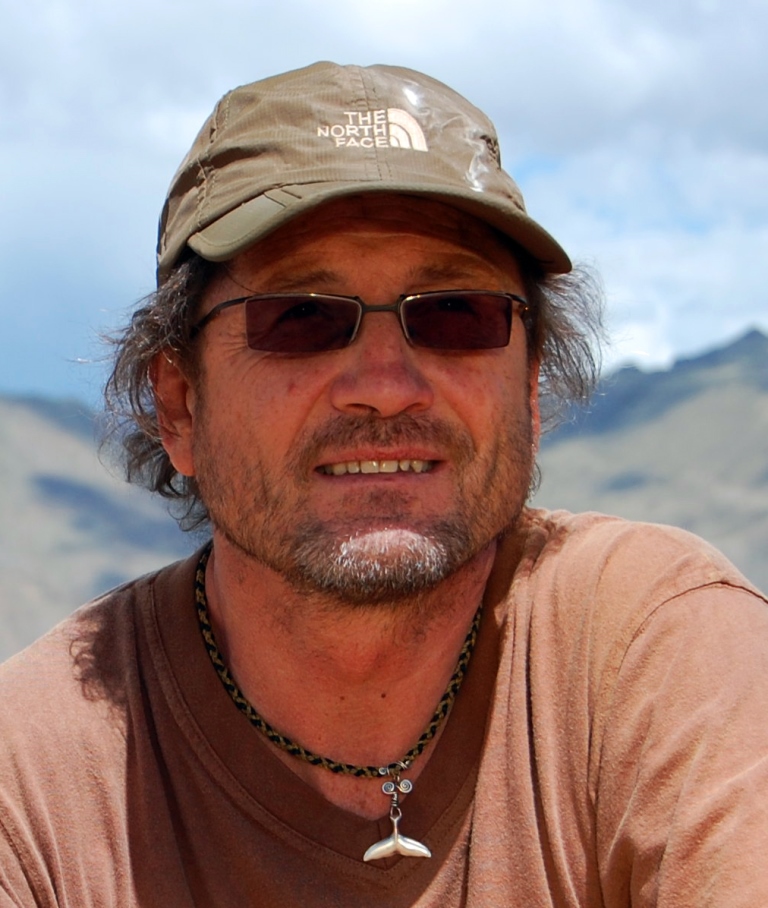
No, he didn´t manage that, he flew after the war on jet bombers Il 28.
Who discovered you for the film, where you got at the age of twenty?
I would think that I discovered myself. I studied literature-drama and was mostly in front of the camera. When I emigrated to USA, I discovered a beauty of an ocean and fell in love with that. I dreamt about getting behind camera and this dream had stronger and stronger urge for me and it became reality at the age of thirty five.
In 1979 you emigrated. Did you know that you want to be tied with film and you had no chance in Czechoslovakia or you just wanted to be free of totalitarian regime and didn´t think about devoting your life to film?
I escaped from totally different reasons and I didn´t think about getting to film. There are two ways how to get to film, short and long ones. I took the latter. I wanted to see the world and I knew I can´t do it from behind Iron Curtain. I was jack of all trades and did everything that came my way. Once I went diving and discovered sub-ocean world and I realized this is what I want to do. But I made my first film after I returned to Czechoslovakia.
You taught acting in America. What could you offer those students when you had only five films and one TV series under your belt?
I started to teach at Florida Academy of Dramatic Arts after five years stay in USA.I didn´t teach film as such, I taught film acting. My students were focused on theatre so when I taught them film acting it didn´t matter that much, that my experience wasn´t that big. I am proud to say that some of my pupils actually made it in Hollywood. One of them Lee Sosin is successful producer now.When we parted at the end, because I devoted more and more time to my projects it was very emotional and we all cried. In fact I only taught for two years and it came out of blue and in America you always had to say you can do it.Whole emigration was big improvisation.
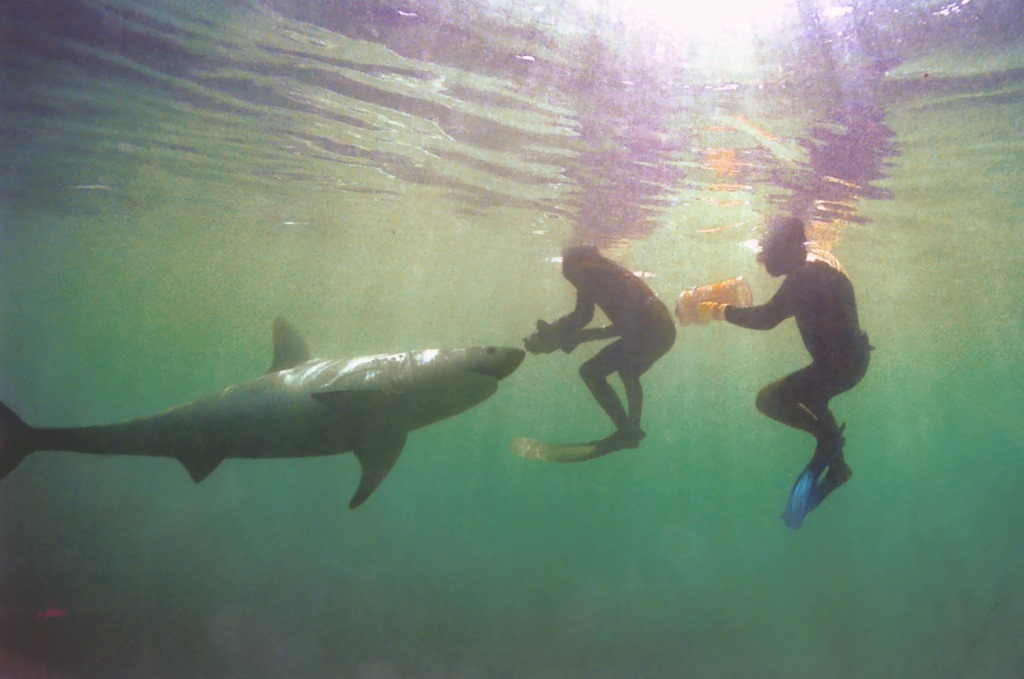 How did you come up with name Lichtag? Does it mean that Montag, Freitag and Sonnatag wasn´t enough for such intrepid person like you so you created eight day in a week?
How did you come up with name Lichtag? Does it mean that Montag, Freitag and Sonnatag wasn´t enough for such intrepid person like you so you created eight day in a week?
Ha, ha, great question. I was born as Zdeněk Loveček and married a girl named Jitka Lichtag and since they didn´t have a male in the family, they asked me if I would mind changing my name to keep Lichtag race alive. So I was Zdeněk Loveček-Lichtag but in America they couldn´t pronounce my first name so I ended up with Steve which is much more understandable and when I got an American citizenship, I let it stay as Steve Lichtag.
During time of Perestrojka you made six part series about gulags in Soviet Union which is a topic they would prefer to forget. What led you to it, didn´t you have any trouble with censorship and what response did it have?
That series Sibiř-země žalu, země naděje (Siberia-land of sorrow, land of hope) was my second film project and I was still in America. Milan Maryška became a director and I made it in cooperation with Czechoslovakian Krátký film. Even though it was during Perestrojka when regime thawed a bit, we had number of problems and it was very tough. Since we were Czechoslovakian crew and not American, they let us in and before we finished it I made production contract with private Russian TV who helped us to finish it. There were two versions of the film-Czechoslovakian- ordered by Krátký film which was very successful and then so called- western- version, which was bit slower and heavier and funnily enough I made it for BBC who didn´t show it in the end since the film didn´t match the then rhythm of BBC programme.
Very often you film in protected areas where entry is forbidden to ordinary people. How does it work when getting permits and do the regions use your films as
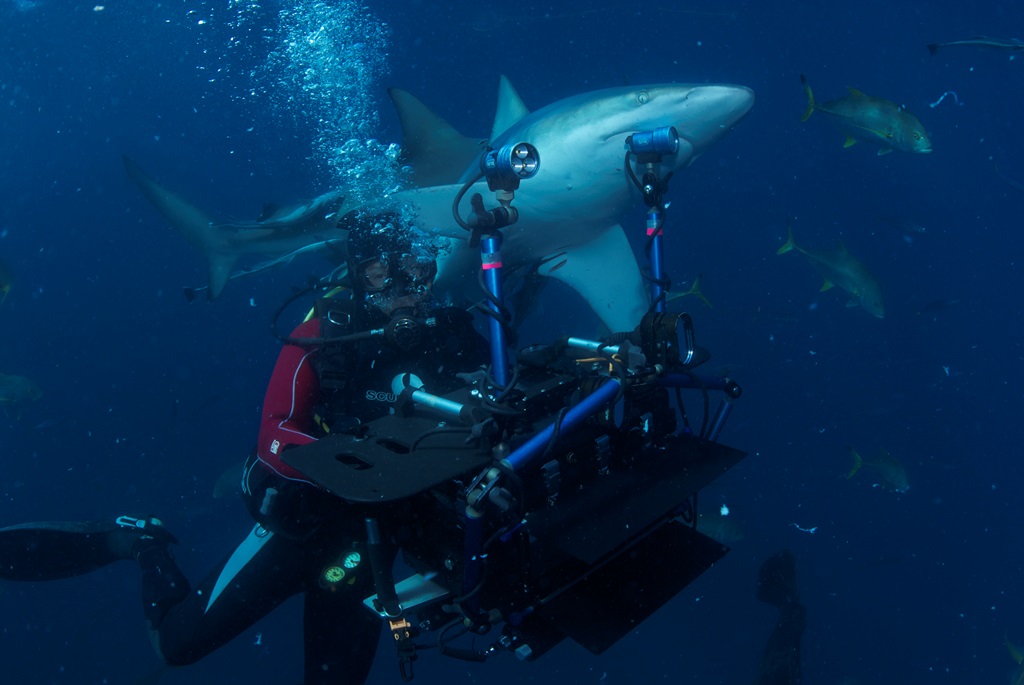
a tool for rescuing particular animals or areas?
Yes, we have to get permissions well ahead and it is all made on political level. Countries where we filmed of course use our films for educational reasons.
Do you have any script before you start filming on the land or in the sea or it is all down to editing to make any sense of the story?
Before I start filming I always try to put together some story line since every film must have a story. From my friends or crew in given area I have information how does it work there. Then I try to get there to see the location and get the feel of it. There I get the idea what is possible to shoot and what isn´t. There are the cases when I have idea and then weather gets awful or the animals aren´t there, but I can´t control these aspects. So we film how much we can and than come phase two, editing. Here we make the whole story and put it together.
Animals aren´t actors so you can´t tell them you need take two. How does it work in order to have perfect light and catch everything you had in mind?
Thankfully we are in era of digital technology so we shoot and shoot and shoot. We don´t have to count every meter of precious film as in old days. The tax for this it amount of time we have to devote trying to find the perfect picture and cut off those not so perfect.It´s sometimes heart breaking but you must not be sorry to drop less than perfect footage.
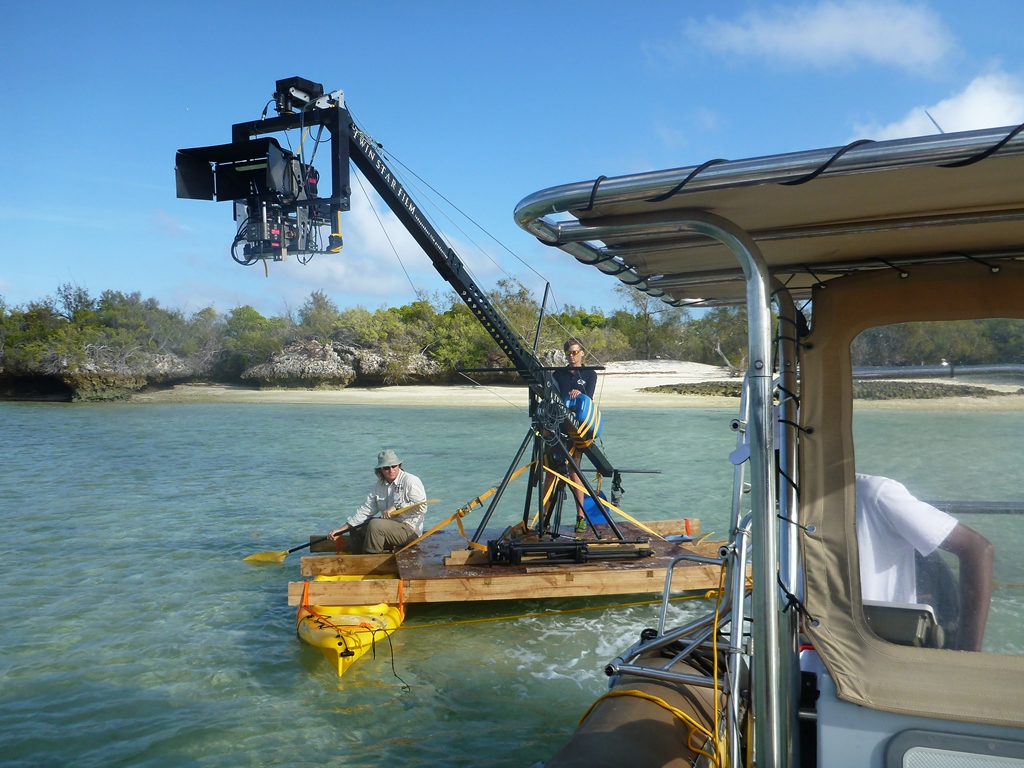
I say this comes with the age.I used to make films which came from my heart and I only took money from partners who accepted the fact that I can not calculate the budget very accurately. They always gave me the money I asked for and if I had to fork in more money, they always did that.At the very beginning, me and my crew did it for next to nothing and we were so pleased the film was actually made. If you make a film which comes from your heart, it wins the festivals and people like it and go to watch it and partners know it all was worthy and had a sense. But alongside that, partners get more and more demanding not only from artistic point of view but also from the technical one and that is when the attitude starts to change. I always tell my partners a worse scenario and if I make it cheaper, the better. I am not able to tell them if I have to go to the location once or three times and each flight and journey cost something. My first films used to cost millions crowns, film Aldabra produced by Starline cost tens of millions and next year I wanna make film for hundreds of millions so you see the difference is quite big now.
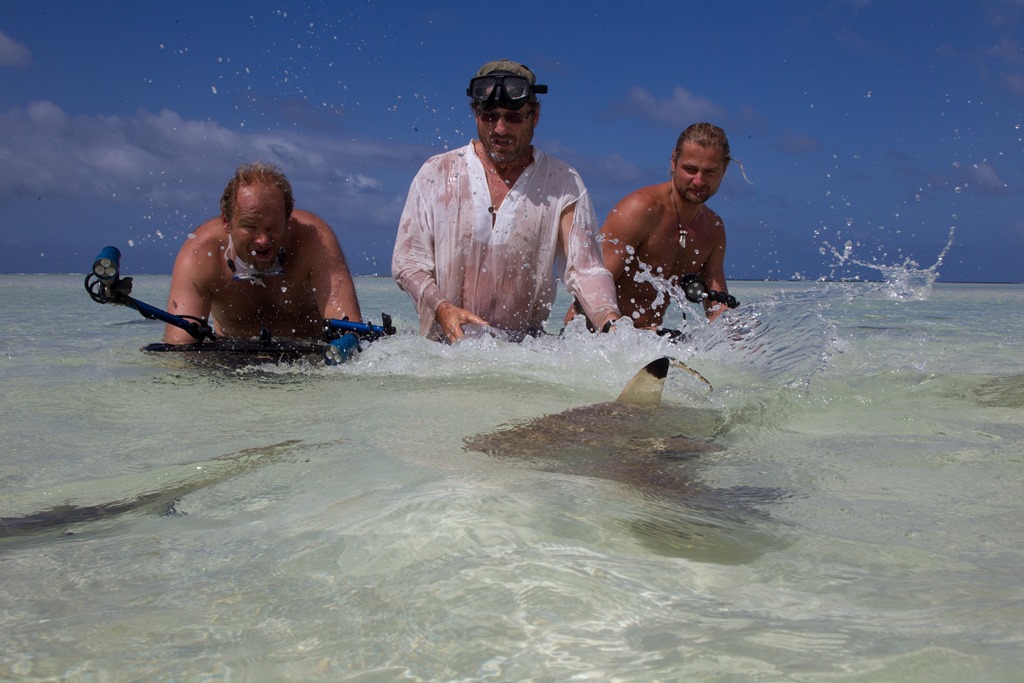 How do you choose the topics for our films? You are interested in things happening around you and if something gets you, you look closer and if it´s possible, you got there and film?
How do you choose the topics for our films? You are interested in things happening around you and if something gets you, you look closer and if it´s possible, you got there and film?
You should have asked me this question more than five years ago. Now I only make films according to scripts, I no more do documentaries and only devote my time to producing and making feature films. But it used to work the way that I always pricked up my ears and listened to various people and there was bunch of ideas. Someone told me that crocodiles fight with sharks for territory, I got interested, phoned somebody in that area and asked him for details and than I started to find the story of it. People think that to make a documentary you only have to have good pictures of the nature. It´s rubbish cos every film has to have a story and festivals jury don´t appreciate technology or quality of picture but the story!!!.At present time it is very hard to catch new viewers, everyone looks into his Iphone and gets affluence of information so it´s difficult to get him interested. Some twenty years ago it was much much easier.
Have you ever got into situation when filming animals, human race showed you that you are not welcome there cos you enter their kingdom?
Yes. During filming a movie Poslední lovci (Last hunters).I wanted to film a story of hunters who cruelly kill the whales. At the end they showed us that we-white people, who have everything-have no room in their hard, cruel world. They never told us but we felt we are misfits there. Part of the movie is a sequence, where some British ecological company called all hunters in and told them that they should not hunt the whales, that it would be better if they open there some kind of travel agency and bring in tourists, who would come to look at the whales. I thought it was totally absurd since these Englishmen, who wanted to put their foot into the door there and open their own business, wanted these hard working hunters sell some souvenirs and work on their modern ships, which would bring in tourists. I knew that once we finish the film and leave that area, it´s the best thing we can do for aboriginals.
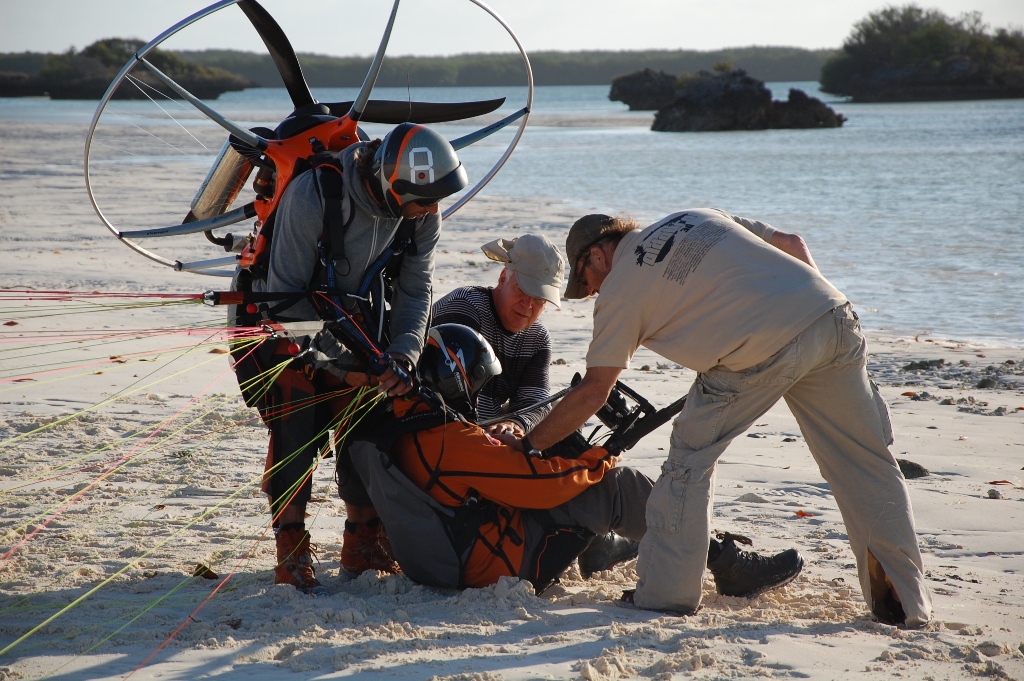
It was very extraordinary feeling since I did something that isn´t everyday´s job, we have no experience with and we don´t know how it will finish. I tried it many times and I still wasn´t sure if I do a right thing to rape the feelings of that creature. Human being is too primitive species to understand these animals living in their own world .I don´t think human being is worth of surviving even though he tries to understand everything.
You established festival Voda-moře-oceány (Water-sea-oceans), and you are honorable president of the festival Příběhy Země ( Earth stories). Do you think these festivals will find their way to millions of people around the world or again big stars who cares about environmental things will have to come so public will sit and finally take notice?
Everybody who establish a film festival and keeps it running is a hero.I established aforementioned festival 15 years ago so I know how hard it is to keep it running, get sponsors and find people who would come and watch films. Film stars help to make these festivals publicly visible and without them the life of festivals would be much harder. Příběhy Zěmě is a new festival, finding it´s way how to find viewers and if the film stars will come in the future, it will only benefit from that. I think current generation does care about nature and life around us and I am convinced they do care how and where we live. Every festival organizer must offer something extra to catch attention of the spoilt viewer who has so many ways of entertainment.


